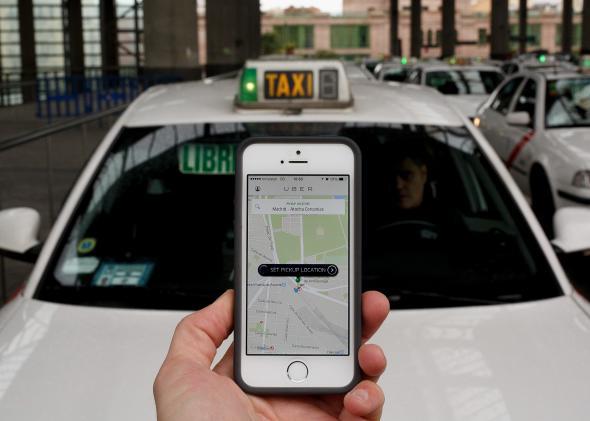When it comes to car-hailing apps, Germany appears to be a little confused. On Wednesday, a regional court imposed a nationwide ban on UberPOP, a peer-to-peer service similar to UberX that Uber offers in European cities, and said that violations could incur fines of 250,000 euros ($264,825). If this sounds familiar, it’s because Germany did something very similar back in September, when a court in Frankfurt ruled that Uber was competing unfairly with local taxis and barred it from operating in the country. That ban ended up lasting all of two weeks.
Wednesday’s decision will not affect Uber Black and Uber Taxi, two other tiers of service that Uber operates in Germany, the company told Reuters in a statement. Uber is also reportedly working on a “new alternative ridesharing service” that would be legal according to the courts. Taxi Deutschland, the German taxi group behind the suit against Uber, had essentially argued that Uber was cutting corners by facilitating transport between passengers and drivers without the proper licensing. Uber, for its part, has maintained that it should not be governed by the same rules as traditional taxi companies because it’s merely a platform linking drivers to riders.
Uber has sparred with governments and the traditional taxi industry just about everywhere it operates, but the fights have been especially heated in Europe. Uber has faced bans in Belgium, Germany, Spain, France, and now Germany again. Last summer, major cities across Europe came to a standstill as tens of thousands of taxi drivers filled the streets to protest Uber’s services. Just this week, French police raided Uber’s Paris headquarters for six hours—seizing smartphones, emails, and documents—as part of an investigation into UberPOP. Uber condemned the raid as an “attempt at intimidation.”
So far, Uber’s default approach has basically been to keep operating, regulators be damned, until popular support for its services forces authorities to change their minds. That’s what it did after Germany imposed a ban the last time, and in the end Uber came out on top. As of today, UberPOP is still operating in Germany and may be able to do so for several weeks as it awaits a final ruling from the regional court. The company says it plans to appeal the decision, which an Uber representative called a “fundamental infringement, in particular of our right under European law to establish and provide a service.”
*Correction, March 19, 2015: The headline of this post originally misstated that Germany had banned all Uber services. The court has only banned UberPOP, a peer-to-peer service that Uber offers.
